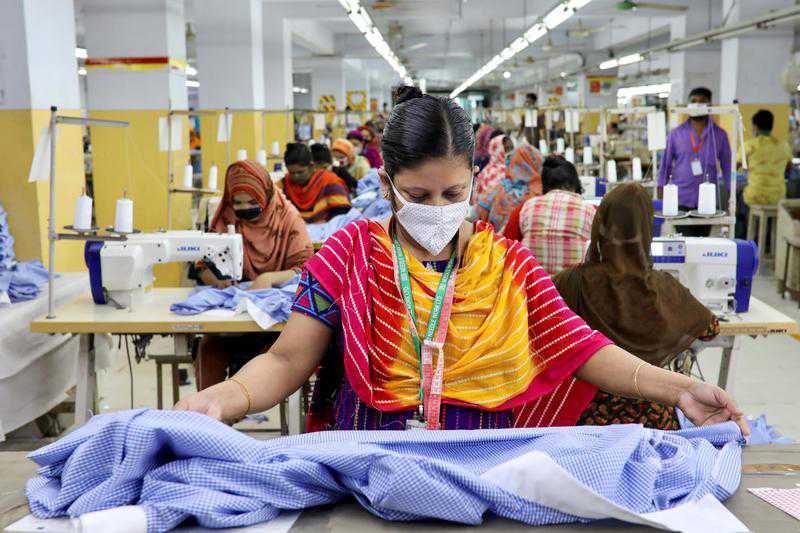Bangladesh garment employees pray for orders as pandemic shreds exports

Image: Collected
Bangladesh garment factory owner Shahidullah Azim laid off 20% of his workers in the wake of the first wave of the coronavirus pandemic. Now watching the next wave building in Europe and America, Azim is looking at “an unprecedented crisis”.
He’s not alone. Bangladesh is the world’s second-largest apparel producer after China, but its industry leaders say international retailers are either refraining from positioning orders, delaying buying decisions, or demanding steep price cuts.
"This is a disaster. We are taking orders just to survive," said Siddiqur Rahman, a garment supplier to international retailers including H&M HMb.ST and GAP Inc GPS.N.
“We anticipated orders could research prior to the Christmas but that didn’t happen.”
Rahman said customers were demanding price cuts off just as much as 15%, making the recovery that much harder.
In the financial year that ended in June, Bangladesh’s garment exports totaled $27.94 billion, down 18% from the previous year.
There is a rebound of less than 1% in the July-September quarter, thanks to a surge in demand for knitwear items, which take into account half of Bangladesh’s total garment exports.
But practically half of factories producing knitwear products like t-shirts and sweaters have found it difficult to stay open, said Selim Osman, president of the Bangladesh Knitwear Manufacturers and Exporters Association.
“A second wave could further delay the recovery,” Osman said.
Low wages have helped Bangladesh build its garment industry, with some 4,000 factories employing 4 million workers. Readymade garments certainly are a mainstay of the economy, contributing almost 16% of the country’s GDP, in line with the central bank.
Factory owner Azim, who supplies European and US retailers, says he has been forced to cut one-in-five jobs.
“That’s the case for almost all of the factories,” he said. “Now the next wave has started. We don’t know very well what the future holds for all of us.”
Experts fear the South Asian country might itself face another surge in infections through the winter, having up to now confirmed 390,206 cases, including 5,681 deaths.
In regards to a third of the one million staff who were either furloughed or laid off have been rehired since July, according to union leaders.
But many workers are struggling without overtime pay, which frequently accounts for 20% of their monthly income.
“Without over time, it really is too difficult to meet up expenses,” said Banesa Begum, an employee in Gazipur, on the outskirt of the administrative centre city Dhaka.
“I simply pray that my factory gets more orders so that we are able to survive.”
Source: https://www.reuters.com
Previous Story
- The never-ending debate over GDP growth
- Worth savoring, not really a fluke
- World Bank sees U-shaped recovery for Bangladesh's economy
- World Bank sees recovery for Bangladesh's economy in...
- Narrowing trade deficit not wholly good
- Bangladesh economy shows early signs of recovery, GDP...
- On Bangladesh GDP in the time of coronavirus
- Just how do we ensure food security in...